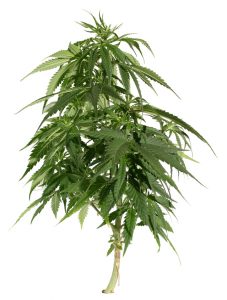FDA Outlines CBD Risks, Declares Legal Dispensary Products Safest
When it comes to the sales and distribution of CBD, there are a lot of unknowns as far as the potential health implications – for better are worse. But now, federal regulators have released comprehensive guidance of this popular cannabinoid. The guidance reviews the potential harms, side effects, and unknowns, while stressing that state-legal cannabis dispensaries provide the safest CBD products to consumers.
As our Los Angeles CBD lawyers recognize, CBD has been on store shelves legally across the U.S. since the passage of the federal 2018 Farm Bill. Recently, advisory notes from the Substance Abuse and Mental Health Services Administration indicate its popularity has ballooned, now being available from some 270,000 retailers across the country. It’s sold in beverages, tinctures, topical ointments, food, and more.
The primary point stressed by federal regulators is that whatever CBD’s benefits, it’s not intended or recognized as safe for children unless expressly approved by the U.S. Food & Drug Administration (FDA) for a specifically stated purpose. As it stands, the only approved purpose for administering CBD to children is to help treat rare cases of epilepsy. Even then, only the purest form of CBD is recommended.
It’s estimated that one-third of Americans used CBD or a CBD-infused product at some point in 2020.
Among the main concerns listed by the federal agency:
- Lack of clear safety standards.
- Inconsistent quality control.
- Lack of uniformity in labeling.
All of these, the agency said, leads to additional concerns for accidental intoxication or overdose – primarily involving children. The primary health risks include potential for adverse drug interactions, adverse impacts to development and reproduction, and liver toxicity. These statements, however, lack the clinic research that might conclusively determine the safety (or lack thereof) with regard to CBD products. They simply haven’t been studied adequately – thanks to the U.S. government’s own rules.
What’s more, the FDA didn’t go out of its way to list the benefits of CBD – which include reduced reliance on powerful prescription medications like opioids for treatment of chronic pain and other conditions.
Despite this (and fervent calls from CBD industry advocates, stakeholders, and California lawmakers), the FDA has already stated it’s not going to issue rules specific to CBD that would allow it to be lawfully used as a food item or dietary supplement. The agency said it intends to rely on Congress to create these new rules.
The agency has also turned down numerous requests from Americans seeking FDA rules for CBD marketing. This has left California CBD retailers and manufacturers in the dark about what rules they need to follow – making it all the more imperative to rely on an experienced cannabis lawyer for guidance on walking the legal tightrope on everything from banking to advertising to sales to warehousing to order fulfilment. Continue reading
 Cannabis Law Group's Medical Marijuana Legal Blog
Cannabis Law Group's Medical Marijuana Legal Blog








 was the first country to fully legalize marijuana, and the South American country has learned much as a result of trial-by-error. Cannabis was legalized there five years ago, but it wasn’t until last year that legal sales began. Since then, Uruguay has experienced a number of supply problems. Residents report having to travel long distances to licensed pharmacies, and sometimes once they arrive, the supply is dry.
was the first country to fully legalize marijuana, and the South American country has learned much as a result of trial-by-error. Cannabis was legalized there five years ago, but it wasn’t until last year that legal sales began. Since then, Uruguay has experienced a number of supply problems. Residents report having to travel long distances to licensed pharmacies, and sometimes once they arrive, the supply is dry.